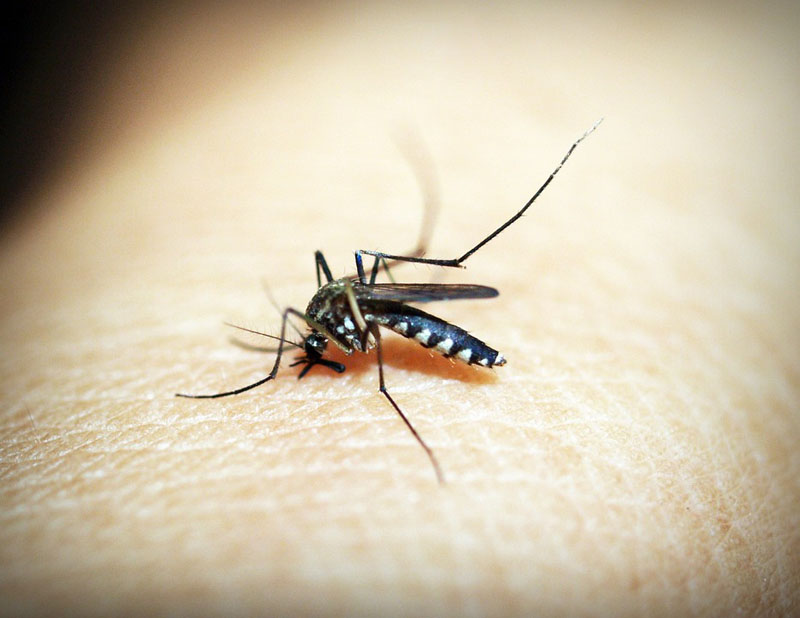 Malaria
Malaria
Geneva: Marking World Malaria Day, the World Health Organization (WHO) is issuing a call for increased implementation of new and existing interventions to save lives from malaria.
Nearly 1.5 million children at high risk of illness and death from malaria in Ghana, Kenya and Malawi have now received their first dose of the first malaria vaccine, RTS,S/AS01 (RTS,S), thanks to an ongoing pilot programme coordinated by WHO.
The malaria vaccine pilots, launched in 2019, are increasing equity in access to malaria prevention for the most vulnerable and are saving lives.
If implemented broadly, WHO estimates that malaria vaccines could save the lives of tens of thousands of children each year.
“We have the tools to drive down malaria, a package of interventions that includes vector control, preventive medicines, testing, and treatment,” said Dr Tedros Adhanom Ghebreyesus, Director-General of WHO. “These are joined by a safe and effective malaria vaccine, which could save the lives of tens of thousands children every year. With sustained investment and scaled-up efforts to reach those most at risk, malaria elimination in many countries is in reach."
World Malaria Day 2023 is being marked under the theme “Time to deliver zero malaria: invest, innovate, implement”. Within this theme, WHO is urging more effective implementation of available tools and strategies to prevent, diagnose and treat malaria, particularly among marginalized populations.
According to the latest World malaria report, published in December 2022, there were an estimated 247 million new cases of malaria in 2021. The WHO African Region continues to shoulder the heaviest burden of the disease – accounting for an estimated 95% of all malaria cases (234 million) and 96% of all deaths (593 000) in 2021. Nearly 80% of malaria deaths in the African Region were among children under the age of five.
New strategies and tools
Countries have made some progress in expanding access to malaria services for most-at-risk populations. Despite some progress, many people at high risk of malaria still lack access to services that can prevent, detect and treat the disease. Challenges in expanding access to malaria services have been compounded, particularly in sub-Saharan Africa, by the COVID-19 pandemic, converging humanitarian crises, restricted funding, weak surveillance systems, and declines in the effectiveness of core malaria-fighting tools.
To address these threats and support countries in building more resilient malaria programmes, WHO recently published new strategies and frameworks, including:
a new strategy to contain antimalarial drug resistance in Africa;
a new initiative to stop the spread of Anopheles stephensi in urban environments;
a new framework, developed jointly by WHO and UN-Habitat, to guide city leaders in urban malaria control.
a new toolkit to help countries assess their malaria surveillance systems and identify areas for investment
WHO has also increased the transparency, flexibility and access to its malaria recommendations. The consolidated WHO Guidelines for malaria are now available through two digital platforms: MAGICapp and the “Malaria Toolkit” app. WHO encourages countries to tailor the recommendations to local disease settings for maximum impact.
Prospects for new interventions
Continued investment in the development and deployment of new malaria vaccines and next-generation tools will be key to achieving the 2030 global malaria targets.
A second malaria vaccine, the R21/Matrix-M (R21) vaccine, if approved, could help close the sizable gap between supply and demand and further reduce child illness and death from malaria. It is a priority for WHO to continue the thorough and efficient expert review of the R21 malaria vaccine once additional key safety and efficacy data from the ongoing R21 phase 3 trial are available and provided to WHO.
Phased introductions of the RTS,S malaria vaccine in additional countries in Africa are expected to begin in early 2024.
In the vector control space, there are 28 new products in the R&D pipeline. Tools under evaluation include, for example, new types of insecticide-treated nets, targeted baits that attract mosquitoes, spatial repellents, lethal house lures (eaves tubes) and genetic engineering of mosquitoes.
Researchers are prioritizing the development of non-ACT treatments in the field of antimalarial medicines due to the emergence and spread of partial artemisinin resistance. The development of next-generation medicines, such as "triple ACTs," which use a combination of artemisinin and two partner drugs, is underway to reduce the risk of drug resistance.
Support Our Journalism
We cannot do without you.. your contribution supports unbiased journalism
IBNS is not driven by any ism- not wokeism, not racism, not skewed secularism, not hyper right-wing or left liberal ideals, nor by any hardline religious beliefs or hyper nationalism. We want to serve you good old objective news, as they are. We do not judge or preach. We let people decide for themselves. We only try to present factual and well-sourced news.







